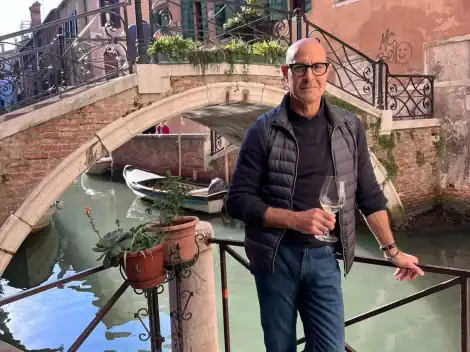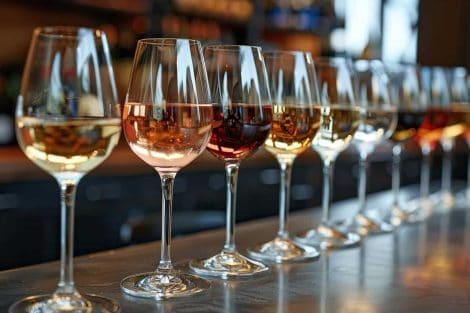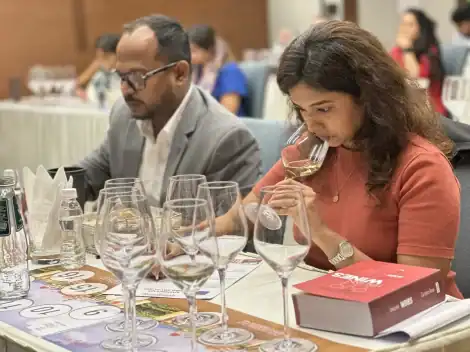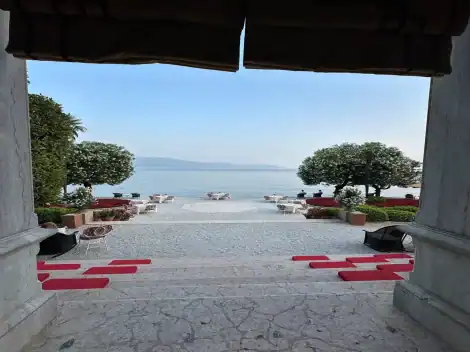by Anastasia Gobbi
On one side, the deep blue of the sea of Milazzo; on the other, the same hue colouring the doors of the workshop run by Antonio Palana (former railway worker) and Michela di Rubbo (former manager of theatre companies) — owners of Frangipane Forno e Cucina. Thanks to a clear and ambitious vision, they’ve been awarded the Pane dell’anno prize by the Pane e Panettieri d’Italia 2026 Guide. Recently opened, the bakery reflects a mature and innovative approach to bread-making that goes well beyond product quality: it aims to offer the local community a fresh perspective on the craft through outstanding products. Chief among them is the monumental pane cunzato — in Sicilian, “seasoned bread” — which they present as a scenic 4–5 kg loaf with a very dark crust, dominated by the umami of sun-dried tomatoes — which also contribute greatly to its colour — and the vegetal notes of Nocellara del Belice olives. The result is a complex bite, an explosive flavour, and a lingering aftertaste.
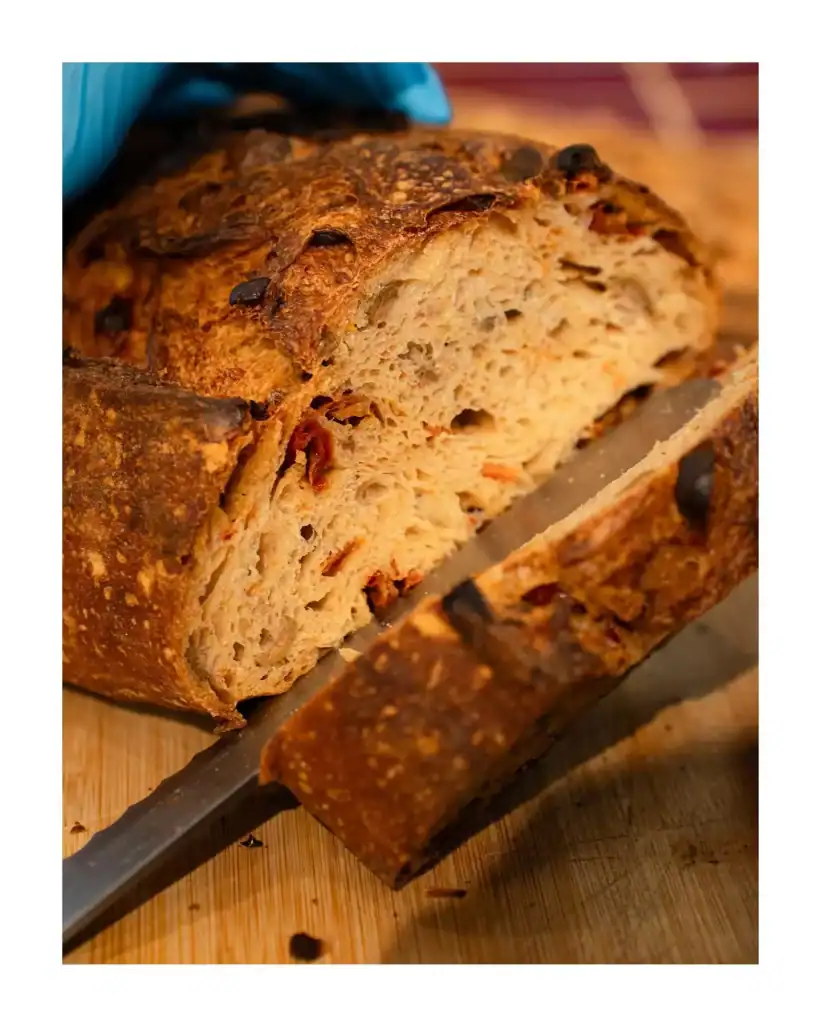
Tell us about your background
Antonio: I was a railway worker for nearly twenty years, but my passion for cooking has always been a constant in my life. In 2019, I started a commis chef course at the Gambero Rosso Academy in Palermo, and there I discovered fermented waters and sourdough. That’s when my “obsession” with bread began, and I started dedicating all my free time to doughs, visiting bakeries during holidays, trying new flours and gradually building confidence. In 2023, I came across MadreProject — a course on bread, entrepreneurship and territory organised in partnership with Davide Longoni — which gave me the vision I needed to turn my now well-defined ideas into a future as a baker.
Michela: I’ve had quite a varied journey — I studied political science in Rome, then worked as an administrator for theatre companies — but I’ve always dealt with people and organisation, which I now apply to our business. To fill the gap in my food sector training, I attended a Food and Beverage Management course at Alma, and then gained experience at the Osteria di Passignano.
Were you hesitant about changing your lives?
Michela: I’ve always seen incredible potential in Antonio, but there were plenty of doubts about leaving a stable job to chase this dream. We believed things had to be done in the right order to ensure the sustainability and profitability of the business, so we started studying.
Antonio: When the time was right, I resigned and we threw ourselves into this adventure, opening on 8 December 2024. Once the project was completed and everything had taken shape, we immediately received confirmation that we had made the right choice.
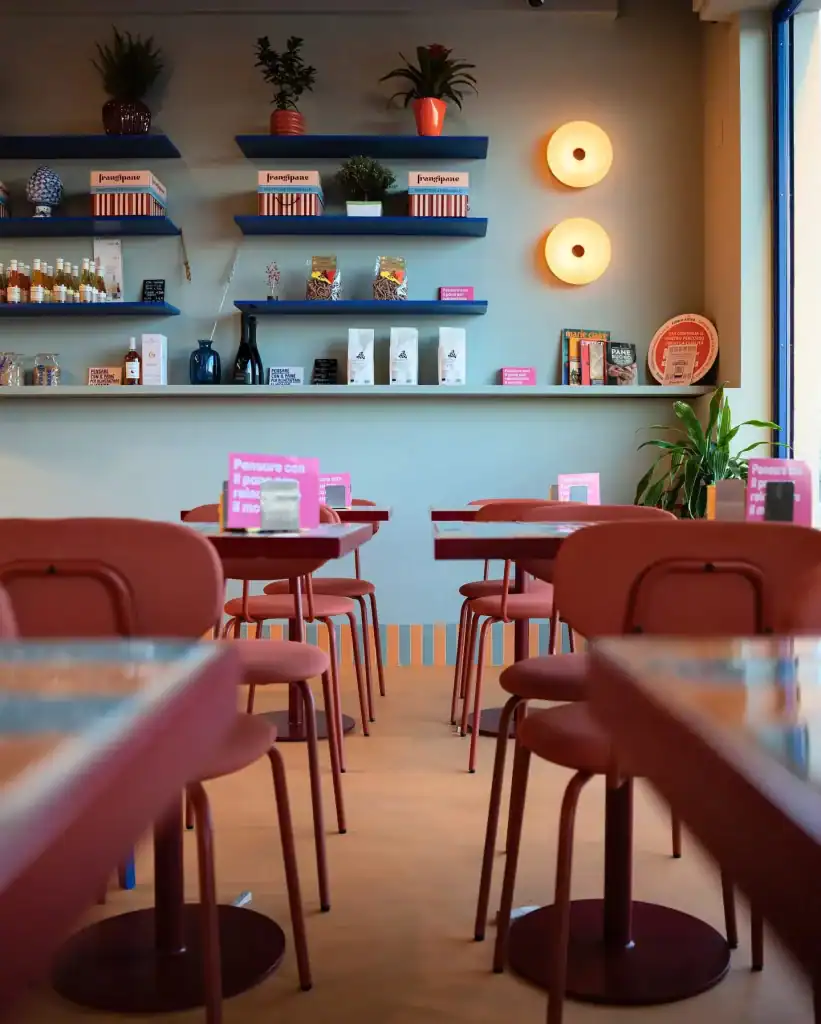
A contemporary bakery in Milazzo. Was it difficult to get the message across?
In Milazzo, bakeries are very different from ours — hardly anyone uses sourdough or agricultural flours, and no one does large loaves — but as someone from Milazzo, I’ve always believed there was a real need for something like this, even more than in other places, to revive a culture of quality bread. It’s important to show people how you can take care of your land through bread. In Sicily, this message — already present from Rome upwards — still struggles to take hold.
How was Frangipane received?
The people of Milazzo reacted positively right from the start; it was important for us to raise the bar, to show what it means to work ethically and give something back to the territory. It’s not just about exploiting resources, but also about returning value.
Where does the name Frangipane come from?
It was extremely difficult to choose, but in the end, we opted for Frangipane because of its strong symbolic value. Opening this bakery marked a real life change for us, and bread represents the turning point between the before and after — hence Frangi-Pane (Break-Bread). There’s also the liturgical meaning of bread as a means of sharing, broken and distributed among the disciples. For us, the idea of community and sharing is fundamental.
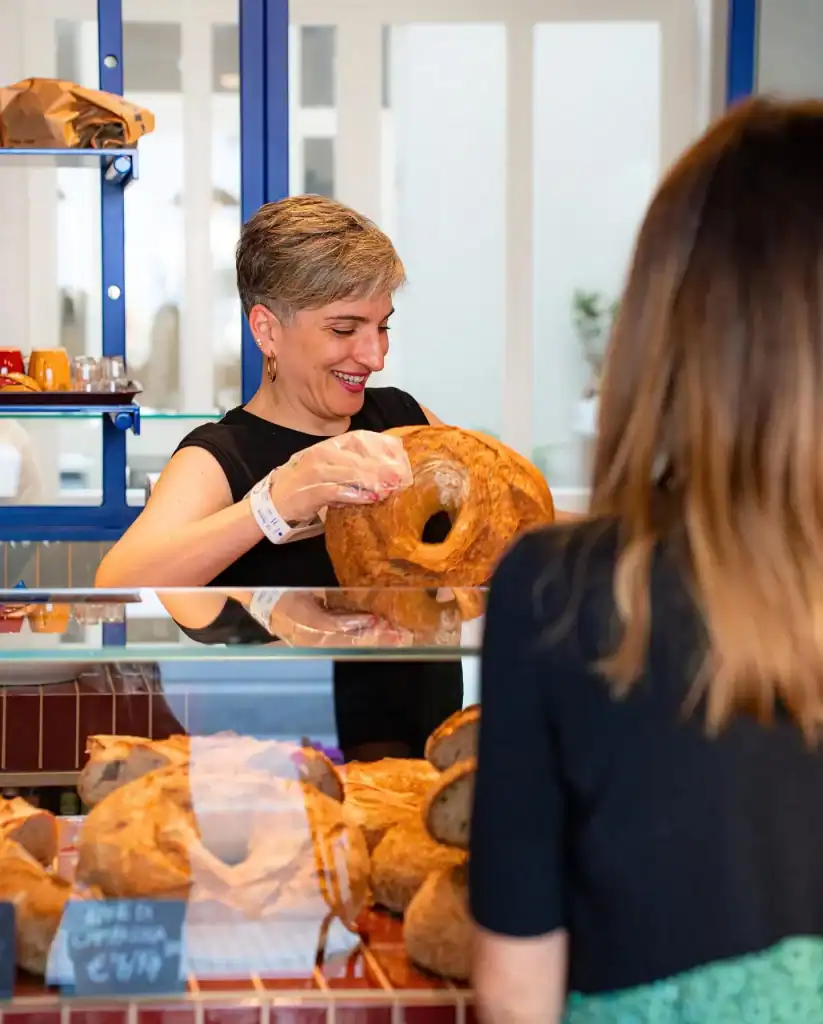
You both have prestigious training. How important is it, in your opinion, to invest in education in this sector?
Antonio: In my experience, the MadreProject course was crucial in turning my passion for baking into a truly sustainable life project, which is a privilege not everyone has. Being in that environment helped me understand the importance of building an ethical business based on bread, customer relationships and territory.
Michela: Today, high-quality training makes all the difference. Talent can give you a push and help you reach the next level, but without technical knowledge and continuous study, it doesn’t get you very far. And staying up-to-date is essential for building a network of people.
What are your most popular products?
There’s real interest in all things bread — many people come on specific days because they’re interested in particular loaves. Then there’s our pizza, which we offer in tray, pala, and pan versions; even though it’s quite different from local focaccia, it was an immediate success.
Future plans?
The more we go forward, the more excited we are by the idea of starting to grow some of our own raw ingredients. Of course, since we lack technical know-how, it won’t happen too soon, but we’d love to start laying the groundwork to do it — to have control over the entire supply chain.
Milazzo, via dei Mille, 42 – 351 4245615

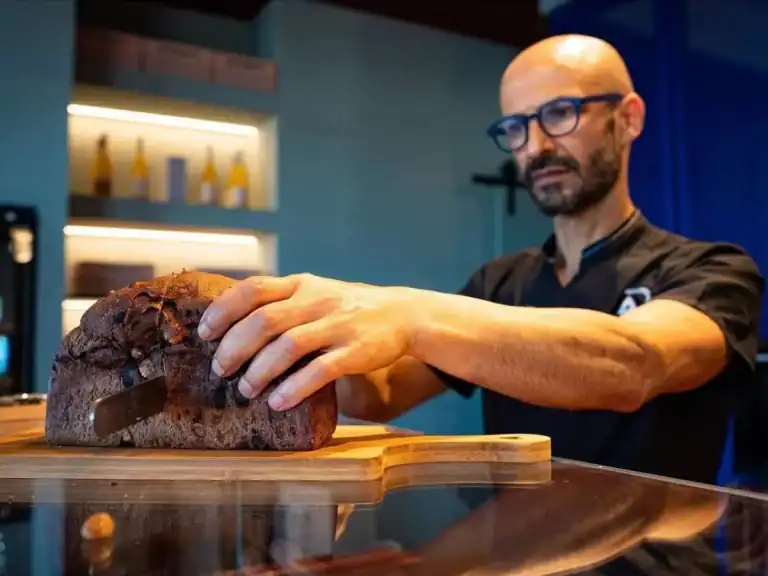
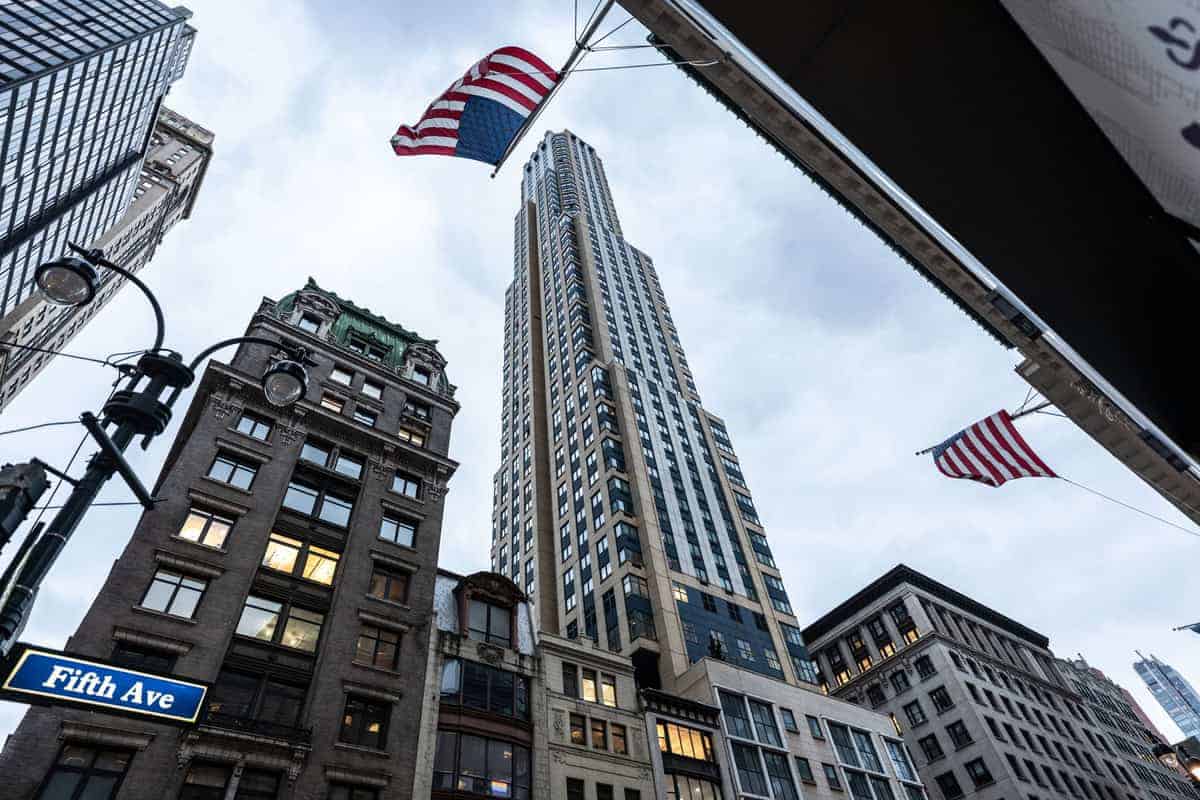 In the US, consumption of Italian wine plummets: -10% in May alone. UIV warns: “Tariffs could deal a fatal blow”
In the US, consumption of Italian wine plummets: -10% in May alone. UIV warns: “Tariffs could deal a fatal blow”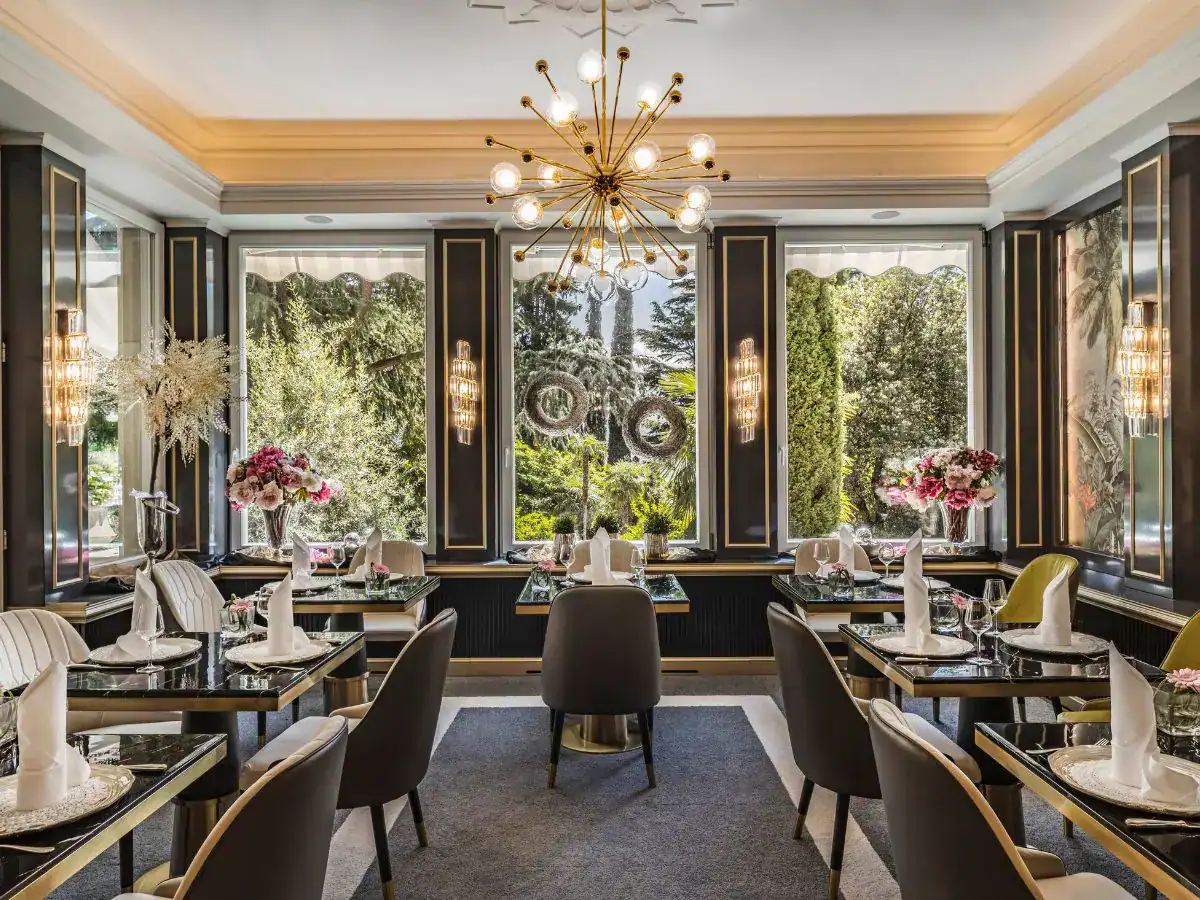 From Jägermeister to beetroot: the “king of bitters” and his daughter have transformed Merano into a wellness retreat
From Jägermeister to beetroot: the “king of bitters” and his daughter have transformed Merano into a wellness retreat Trippa turns ten: how it changed Milan
Trippa turns ten: how it changed Milan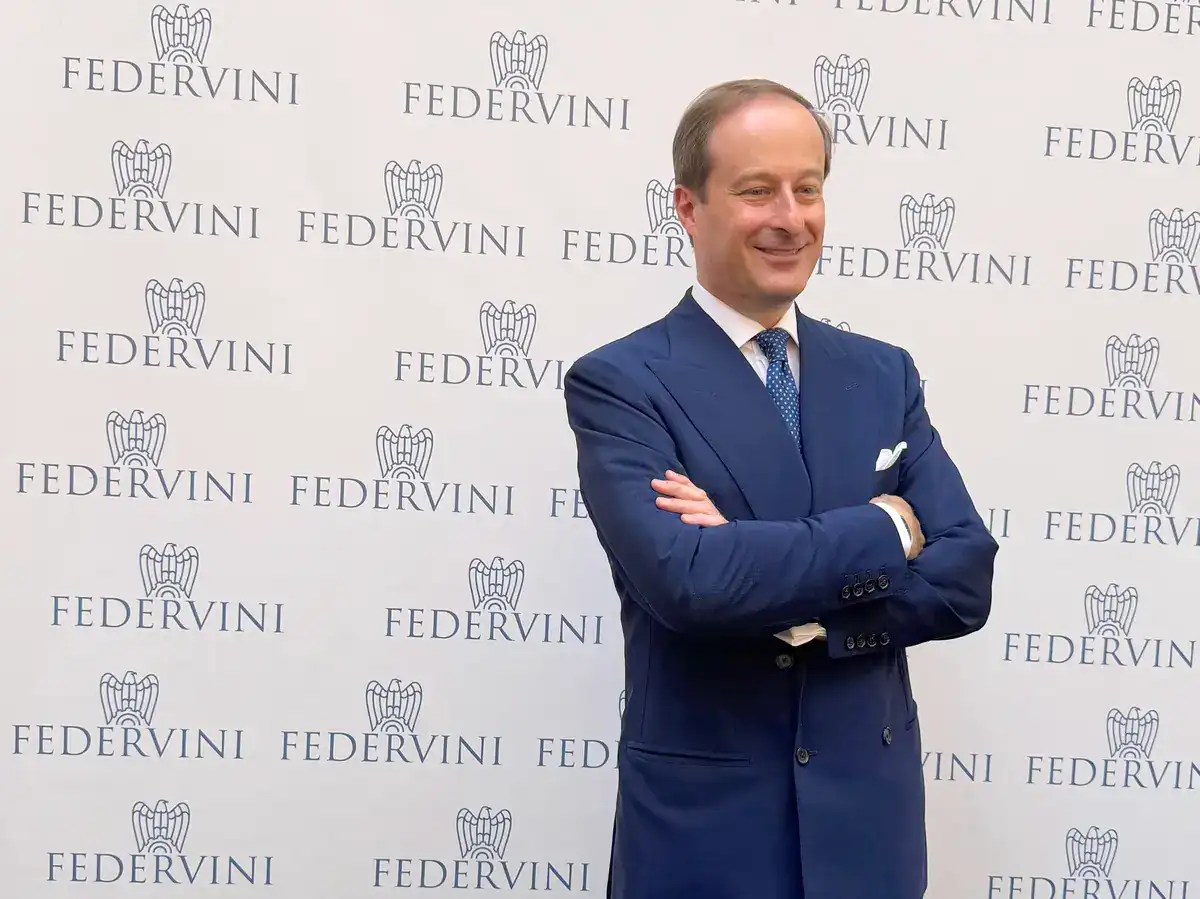 Turning point at Federvini: Giacomo Ponti is the new president. Albiera Antinori confirmed as head of the wine group
Turning point at Federvini: Giacomo Ponti is the new president. Albiera Antinori confirmed as head of the wine group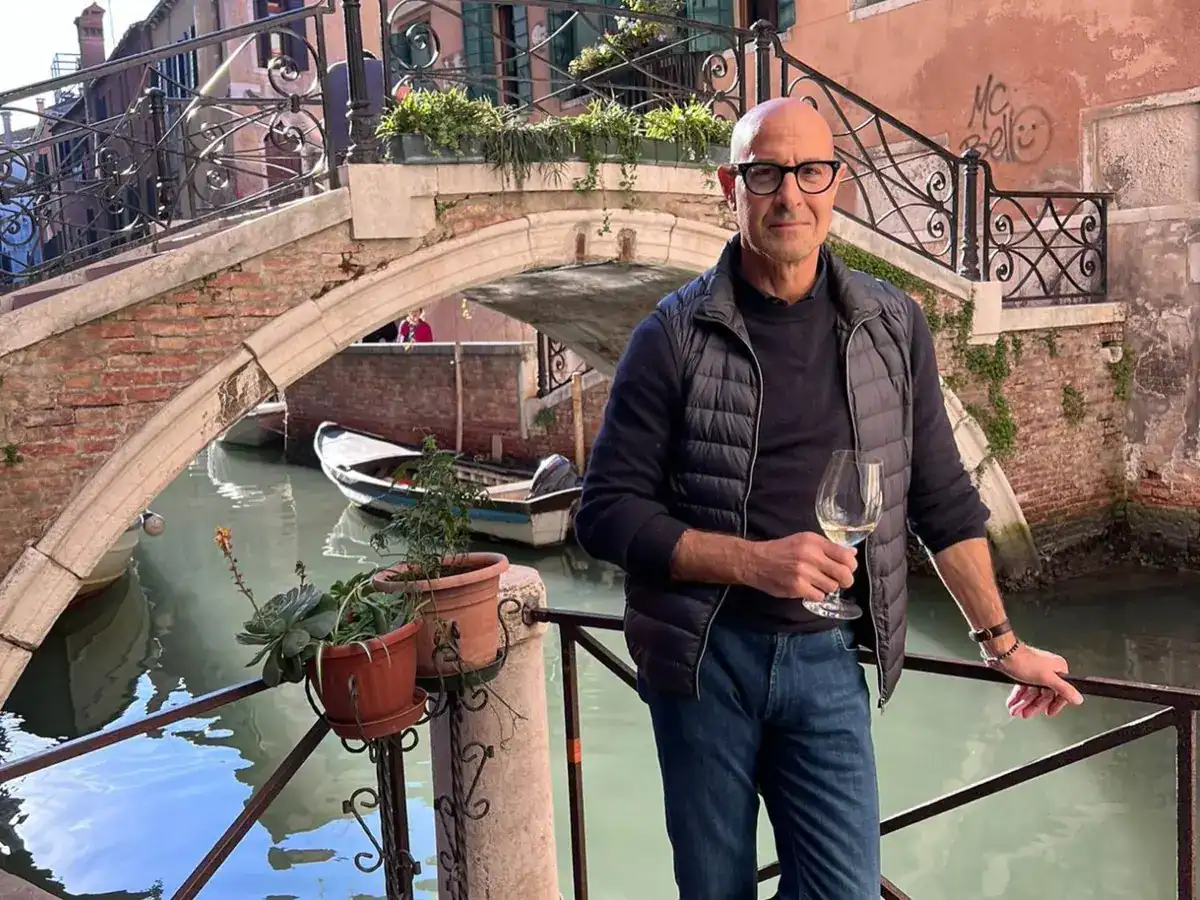 Florence and the Tucci Effect: between promotion and tourism pressure
Florence and the Tucci Effect: between promotion and tourism pressure